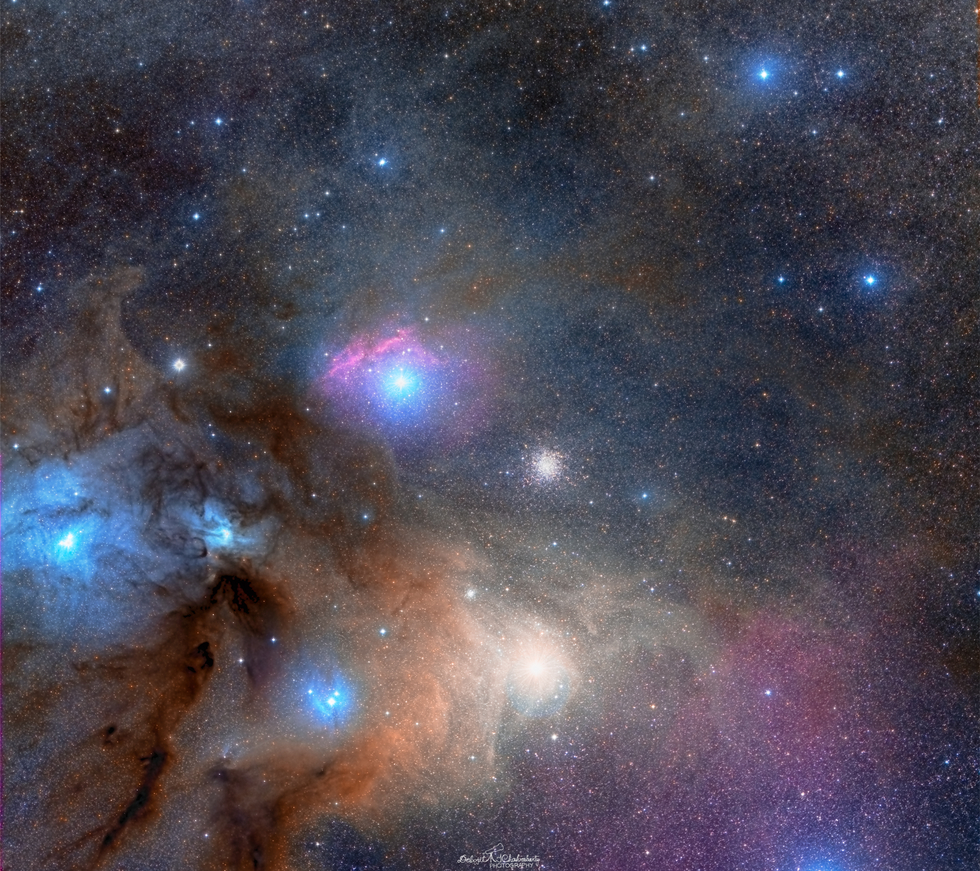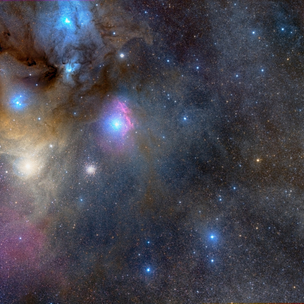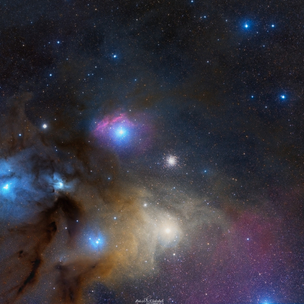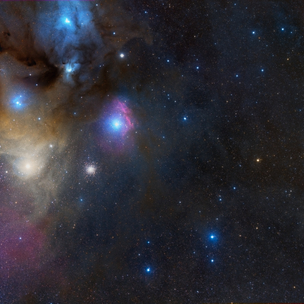Rho Ophiuchi
0
5
Rho Ophiuchi
Rho Ophiuchi is a multiple star system in the constellation Ophiuchus. The central system has an apparent magnitude of 4.63. Based on the central system's parallax of 9.03 mas, it is located about 360 light-years (110 parsecs) away. The other stars in the system are slightly farther away.
.
.
The different color exhibits different reactions occurring in the region. The blue regions shine primarily by reflected light. Blue light from the Rho Ophiuchi star system and nearby stars reflects more efficiently off this portion of the nebula than red light. The red and yellow regions shine primarily because of emissions from the nebula's atomic and molecular gas. Light from nearby blue stars - more energetic than the bright star Antares - knocks electrons away from the gas, which then shines when the electrons recombine with the gas. The dark brown regions are caused by dust grains - born in young stellar atmospheres - which effectively block light emitted behind them. The Rho Ophiuchi star clouds, well in front of the globular cluster M4 visible here on the upper right, are even more colorful than humans can see - the clouds emit light in every wavelength band from the radio to the gamma-ray.
.
.
This part of my Rho Ophiuchi mosaic project, and this one is one of the tiles. The image consists of LRGB data, captured as part of advance request using a remote observatory of @telescope.live
.
.
.
EXIF: LRGB*4*600s*200mm*f2
.
.
.
The different color exhibits different reactions occurring in the region. The blue regions shine primarily by reflected light. Blue light from the Rho Ophiuchi star system and nearby stars reflects more efficiently off this portion of the nebula than red light. The red and yellow regions shine primarily because of emissions from the nebula's atomic and molecular gas. Light from nearby blue stars - more energetic than the bright star Antares - knocks electrons away from the gas, which then shines when the electrons recombine with the gas. The dark brown regions are caused by dust grains - born in young stellar atmospheres - which effectively block light emitted behind them. The Rho Ophiuchi star clouds, well in front of the globular cluster M4 visible here on the upper right, are even more colorful than humans can see - the clouds emit light in every wavelength band from the radio to the gamma-ray.
.
.
This part of my Rho Ophiuchi mosaic project, and this one is one of the tiles. The image consists of LRGB data, captured as part of advance request using a remote observatory of @telescope.live
.
.
.
EXIF: LRGB*4*600s*200mm*f2
.
SPECIFICATIONS
Telescope
CHI-5
Camera
FLI ML16200
Location
Chile
Date of observation
22/07/2022
Filters
LRGB
Processing
Pixinsight/Photoshop
Credits
144






